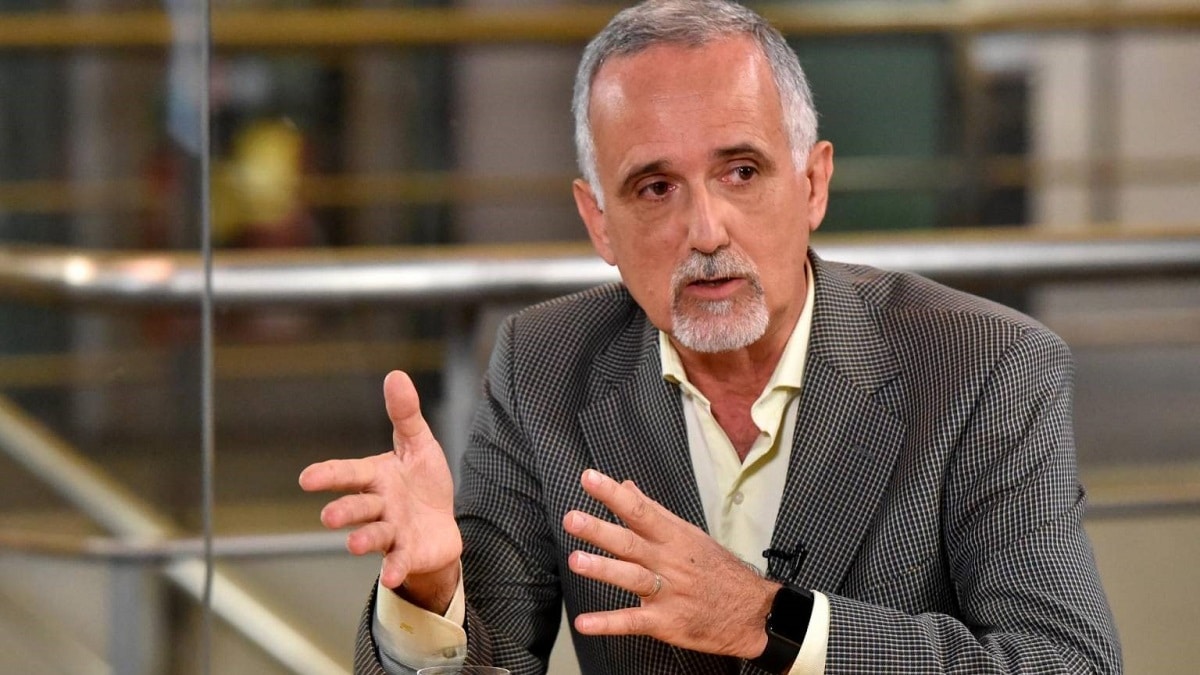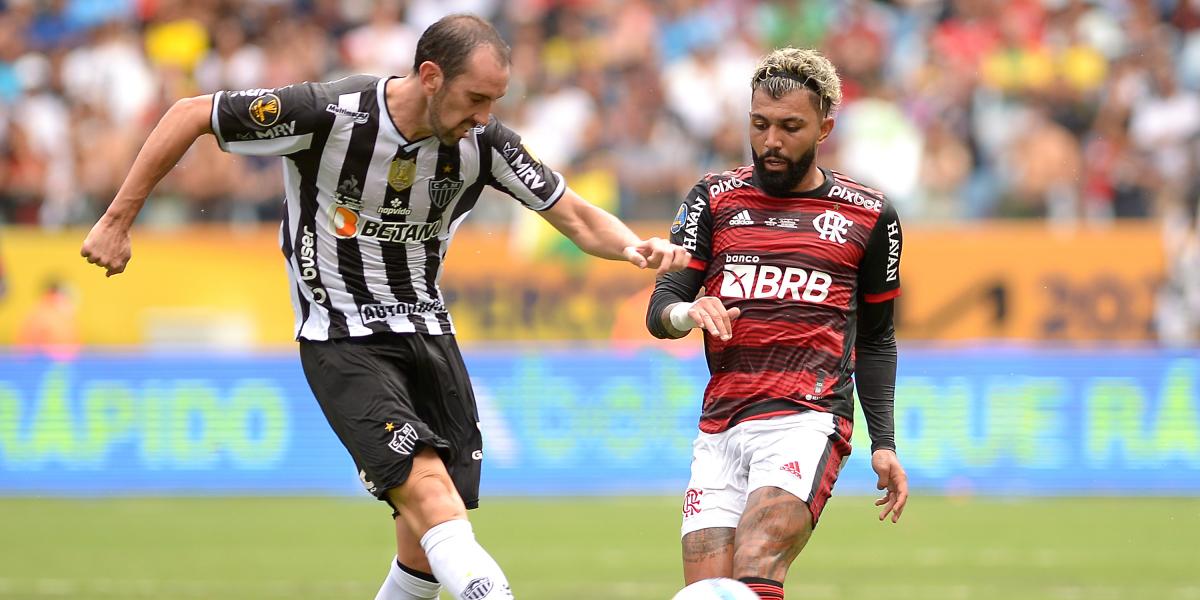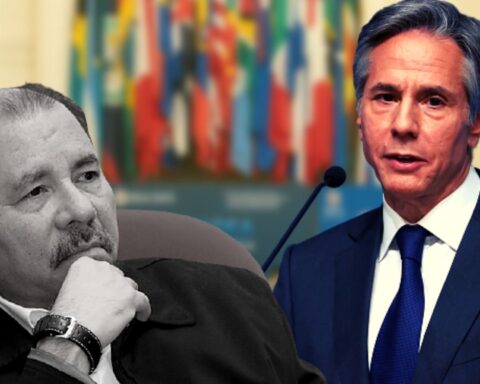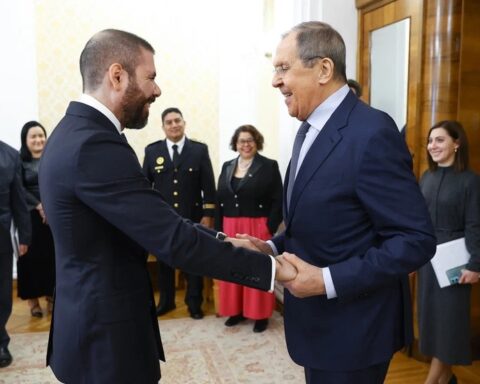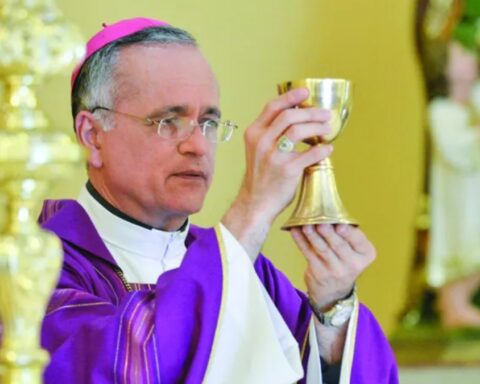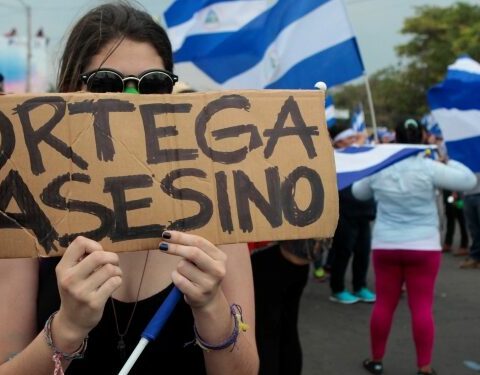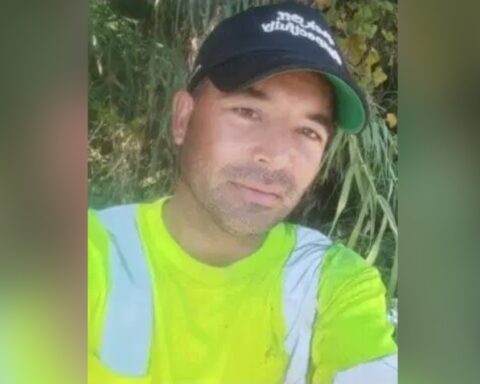For Carlos Jornet, president of the Committee on Freedom of the Press of the Inter-American Press Association (IAPA), in Nicaragua “freedom of the press has totally shipwrecked”, and warns that, in the short term, such a situation “it will not be possible to reverse it”, because with the re-election of Daniel Ortega and Rosario Murillo it will come “more repression, less freedom and more persecution of journalism”.
He assured thatThe nine-year prison sentence against the general manager of the newspaper La Prensa, Juan Lorenzo Holmann, is “totally illegal and shows the desperation of the Ortega-Murillo regime to confront anyone who dares to express dissidence.”
In an interview with the program TonightJornet pointed out that the confiscation and search of the facilities of La Prensa, in August 2021, “goes against all inter-American standards on freedom of the press and the principles of freedom of expression,” and also “is a decision clear to put an end to all traces of independent journalism”.
Holmann —regional vice president of the SIP— was condemned by the Ortega judge Nadia Camila Tardencilla, for allegedly committing the crime of money laundering, although the defense of the political prisoner assured that the Prosecutor’s Office was unable to prove the commission of the crime. In the sentence, the justice of the regime imposed an economic fine of more than three million dollars, the disqualification from the exercise of his profession and the police custody of the assets seized in La Prensa, executing a illegal confiscation of that means of communication.
The court that supported the Ortega-Murillo regime sentenced political prisoner Juan Lorenzo Holmann, general manager of the newspaper La Prensa, to nine years in prison. How does the IAPA assess this new sentence?
It is a totally illegal measure that shows the desperation of the regime to confront anyone who dares to express dissidence, be they journalists, opposition leaders or social leaders. It is an escalation that goes back a long time, but in September 2020 it began to accelerate with a process of a series of laws that laid the foundations for the road.
Starting in May, precisely with the raid on CONFIDENTIAL and to the television studios that worked there, the arrest of the main opposition candidates was abruptly accelerated, so that the elections became only a mask.
With the arrest of Juan Lorenzo, who is also our regional vice president, from the first moment we raised our voice of alarm and alert. We have made a virtual vision of Nicaragua to review the state of freedom of the press and held meetings with the Inter-American Commission on Human Rights, with other organizations. On April 19 we are going to hold a panel or a round table, where relatives of political detainees are going to comment on the reality they are suffering, because the regime is not only cruel to those who express their dissidence but also to relatives and friends, trying to silence all critical voices.
The judicial sentence against Holmann extends to the assets and facilities of La Prensa, the only newspaper in the country, which has been taken over by the Police since August of last year. How do you assess this police occupation of a media outlet?
It clearly goes against all inter-American and global standards on press freedom. the raid, the confiscation of a means of communication or any material for journalistic work ands totally contrary to the principles of freedom of expression and, in that sense, we believe that it is a “presumably judicial” decision, I say presumably because justice in Nicaragua is totally controlled by the regime, and it is simply one more tool of power to persecute the political opposition and the free press, which we do not see any legality, but, on the contrary, it is a clear decision to end all traces of independent journalism.
With this, there would already be three media outlets in Nicaragua confiscated by the government; one of them is CONFIDENTIAL and the other 100% Noticias, what do these facts tell us about press freedom in Nicaragua?
We have an index the Chapultepec index, that measures a series of parameters to evaluate freedom of the press in the countries of the continent. Nicaragua is, unfortunately, in the pack that leads the bottom side, along with Cuba and Venezuela, countries where there is no freedom of the press, freedom of expression. We believe that this will not be possible to reverse in the short term, because, with the last re-election, marriage Ortega-Murillo, have consolidated themselves in power. I think that what is coming, if there is no firm reaction from the international community, is more repression, less freedom and more persecution of journalism.
With Juan Lorenzo Holmann there are already six convicted for their activity related to journalism. How do you rate this situation and how does it compare with the rest of the countries in the region? Are there similar cases?
Evidently there are many governments that try to confront or confront journalism, but there are few countries, fortunately, where this confrontation reaches levels as open as those practiced by the Ortega regime, with a justice that in reality only makes a mock trial, because many times the detainees cannot even have contact with their lawyers, or the lawyers can have contact with the file well before the start date of the trial, where the trials are behind closed doors, where they are carried out quickly without clearly showing the evidence. The same thing that has happened in Nicaragua has been happening for years in Cuba and has also happened in Venezuela; Among these three countries, freedom of the press has completely foundered and journalism cannot really be practiced freely, that promotes citizen debate or the proper functioning of the State. ANDSo, that leads to less institutionality, less democracy, it has a much less democratic regime, which is what is being experienced in Nicaragua, with a veneer of democracy because elections are held, but they are totally rigged elections, where the opposition cannot present its candidates freely and where there has been a very high level of abstention because many people disbelieve in the elections and they do so with good reason.
You mentioned that there will be a meeting in which they are going to invite relatives of political prisoners. What is the objective?
Keep the issue of Nicaragua alive at the international level, that the international news agencies become interested again, we are not saying that they have forgotten about Nicaragua, but obviously there are many issues at a global level that are demanding attention; Russia’s invasion of Ukraine, but issues such as those of Nicaragua must be permanently in the public consideration.
We are also asking that the Government of Nicaragua be sanctioned by not granting loans that are not strictly humanitarian, because to the extent that they continue to have international financing, the regimes are consolidated, they are taking control of the legislature, the judiciary, and all the rest of the control bodies, and when there is a dismantled opposition, because many political leaders have had to flee the country or were imprisoned, it is very difficult for citizenship and institutionality to be recovered through democratic means.

